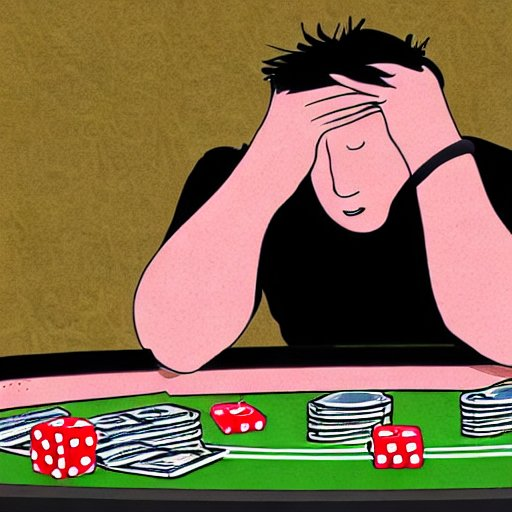What is a Gambling Disorder?
A gambling disorder is characterized by persistent and recurrent maladaptive gambling that causes economic problems and significant disturbances in personal, social, or occupational functioning. It involves risking something of value in the hopes of obtaining something of greater value.

How do we recognize a Gambling Disorder?
An individual may experience four or more of the following symptoms within a twelve month period:
- 1. Feel the need to gamble with increasing amounts of money so they achieve the desired excitement.
- Feeling restless or irritable when attempting to cut down or stop gambling.
- Efforts made to control, cut back, or stop gambling are futile.
- The person becomes preoccupied with gambling. They may have persistent thoughts of reliving past gambling experiences, planning the next venture or thinking of ways to get money to gamble.
- The person would often feel distressed. They may have feelings of helplessness, guilt, anxiousness or depression.
- The person would chase their losses. When they lose money they would return another day to get even.
- The person may cover up or not share the extent of involvement with gambling.
- They may jeopardize or lose an important relationship, job, or educational or career opportunity because of gambling.
- The person may look to others for financial help caused by gambling.
Myths and Facts about Gambling Disorders
- Myth: You have to gamble every day to have a gambling disorder.
Fact: Someone with a gamble disorder may gamble frequently or infrequently. Gambling is a problem if it causes you distress or disrupts your life. - Myth: Gambling is not really a problem if the gambler can afford it.
Fact: Problems caused by excessive gambling are not just financial. Too much time spent on gambling can also lead to relationship and legal problems, job loss, mental health problems including depression and anxiety, and even suicide. - Myth: You have a gambling problem if you’re weak-willed, irresponsible, or unintelligent.
Fact: Gambling can affect people of all levels of intelligence and all backgrounds. Previously responsible and strong-willed people are just as likely to develop a gambling problem as anyone else. - Myth: Partners of people with a gambling disorder often drive their loved ones to gamble.
Fact: people with gambling disorders often try to rationalize their behavior. Blaming others is one way to avoid taking responsibility for their actions, including what is needed to overcome the problem. - Myth: If a person with a gambling disorder builds up a debt, you should help them take care of it.
Fact: Quick fix solutions may appear to be the right thing to do. However, helping the gambler out of debt may enable their gambling problems to continue.
How do we know when we need help?
Here are some warning signs for you to lookout for:
- You gamble to escape worry or trouble.
- You gamble to get money to fix financial problems.
- You’re unable to stop playing regardless of winning or losing.
- You gamble until the last dollar is gone.
- You lose time from work due to gambling.
- You borrow money to pay gambling debts.
- You neglect your family because of gambling.
- You lie about the time and money spent gambling
Warning signs the family should look out for:
- There are unexplained financial problems at home.
- The person does not have much involvement in social or group activities outside the home.
- The person may display distress, anger or depression.
- There is a lack of communication among the family members.
- You may find items of value are lost or missing.
- Family members may work overtime or take a second job to make ends meet.
